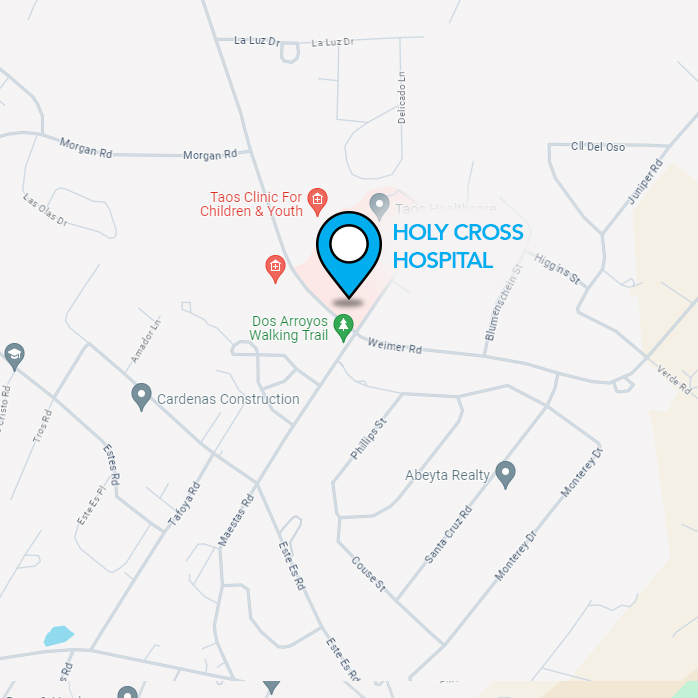Wound Care
Contact Us:
575-758-8883
Holy Cross Hospital’s Outpatient Wound Care Clinic helps people heal their wounds. Each patient receives advanced wound care treatments as well as other state of the art wound care therapy.
Our dedicated team of skilled clinicians consists of a Board Certified Wound Care Nurse Practitioner, Registered Nurses, and an Administrative Assistant. They follow the standard of care for wound management as described in the strict guidelines from the Center for Medicare and Medicaid Services. They continue to learn and have several years of experience dealing with various types of wounds.
They have experience in:
- Bedsores (pressure ulcers)
- Chronic or non-healing wounds
- Wounds on the legs and feet
- Venous disease causing swollen legs and non-healing wounds
- Diabetes mellitus with foot deformities, which can cause calluses and open wounds
- Surgical wounds that fail to heal
There are many conditions that affect the treatment of a wound. Conditions that put people at greater risk for developing non-healing wound including:
- Incontinence
- Altered mental status that affects self-care abilities
- Immobility
- Medical conditions affecting blood flow such as diabetes and vascular disease
- Age – The skin of older adults is generally more fragile, thinner, less elastic and drier than the skin of younger adults making it vulnerable to damage.
- Lack of sensory perception. Spinal cord injuries, neurological disorders and other conditions can result in a loss of sensation.
- Poor nutrition and hydration. People need enough fluids, calories, protein, vitamins and minerals in their daily diet to maintain healthy skin and prevent the breakdown of tissues.
- Excess moisture or dryness. Skin that is moist from sweat or lack of bladder control is more likely to be injured and increases the friction between the skin and clothing or bedding. Very dry skin increases friction as well.
- Smoking. Smoking reduces blood flow and limits the amount of oxygen in the blood. Smokers tend to develop more-severe wounds, and their wounds heal more slowly.
- Limited alertness. People whose mental awareness is lessened by disease, trauma or medications may be unable to take the actions needed to prevent or care for pressure sores.
Every patient seen in our Wound Care Clinic receives a personalized wound care plan based on an initial assessment. Our specialists use a multi-disciplinary approach that includes the evaluation of medical history, nutrition and vascular flow. They work with nutritionist, physical therapists, laboratory specialists, respiratory therapists, and cardiologists.
For an appointment call your doctor for a referral, or call 575-758-8883 for more information.
Phone
Staff
-

Doug Kast, CNP, CWS
-

Sari Peterson, FNP-C, CWS





